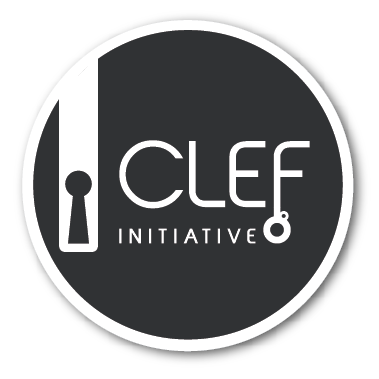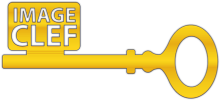- ImageCLEF 2025
- LifeCLEF 2025
- ImageCLEF 2024
- LifeCLEF 2024
- ImageCLEF 2023
- LifeCLEF 2023
- ImageCLEF 2022
- LifeCLEF2022
- ImageCLEF 2021
- LifeCLEF 2021
- ImageCLEF 2020
- LifeCLEF 2020
- ImageCLEF 2019
- LifeCLEF 2019
- ImageCLEF 2018
- LifeCLEF 2018
- ImageCLEF 2017
- LifeCLEF2017
- ImageCLEF 2016
- LifeCLEF 2016
- ImageCLEF 2015
- LifeCLEF 2015
- ImageCLEF 2014
- LifeCLEF 2014
- ImageCLEF 2013
- ImageCLEF 2012
- ImageCLEF 2011
- ImageCLEF 2010
- ImageCLEF 2009
- ImageCLEF 2008
- ImageCLEF 2007
- ImageCLEF 2006
- ImageCLEF 2005
- ImageCLEF 2004
- ImageCLEF 2003
- Publications
- Old resources
You are here
ImageCLEF 2020
Motivation
ImageCLEF 2020 is an evaluation campaign that is being organized as part of the CLEF initiative labs. The campaign offers several research tasks that welcome participation from teams around the world. The results of the campaign appear in the working notes proceedings, published by CEUR Workshop Proceedings (CEUR-WS.org). Selected contributions among the participants, will be invited for publication in the following year in the Springer Lecture Notes in Computer Science (LNCS) together with the annual lab overviews.
For the 2020 edition, ImageCLEF organizes 4 main tasks with a global objective of promoting the evaluation of technologies for annotation, indexing and retrieval of visual data with the aim of providing information access to large collections of images in various usage scenarios and application domains: lifelogging, nature, medicine, and Internet.
Target communities involve (but are not limited to): information retrieval (e.g., text, vision, audio, multimedia, social media, sensor data), machine learning, deep learning, data mining, natural language processing, image and video processing; with special emphasis on the challenges of multi-modality, multi-linguality, and interactive search.
Download the ImageCLEF 2020 call-for-participation flyer here.
Stay tuned with us for the latest information and updates by joining us on the ImageCLEF social media accounts: Twitter #imageclef, and Facebook @ImageClef.
ImageCLEF schedule
Each of the tasks sets its own schedule, so please check the corresponding task webpage for specific dates. A (tentative) global schedule can be found below:
- 20.12.2019: registration opens for all ImageCLEF tasks
- 20.12.2019: development data release starts (depends on the task)
16.03.201927.03.2020: test data release starts (depends on the task)11.05.202005.06.2020: deadline for submitting the participants runs (depends on the task)18.05.202012.06.2020: release of the processed results by the task organizers (depends on the task)25.05.202010.07.2020: deadline for submission of working notes papers by the participants15.06.202007.08.2020: notification of acceptance of the working notes papers29.06.202021.08.2020: camera ready working notes papers- 22-25.09.2020: CLEF 2020, Thessaloniki, Greece
The CLEF Conference
 |
 |
ImageCLEF lab and all its tasks are part of the Conference and Labs of the Evaluation Forum: CLEF 2020. CLEF 2020 consists of an independent peer-reviewed workshops on a broad range of challenges in the fields of multilingual and multimodal information access evaluation, and a set of benchmarking activities carried in various labs designed to test different aspects of mono and cross-language information retrieval systems. More details about the conference can be found here. Also there is more information about the Clef Initiative.
Programme of ImageCLEF at the CLEF 2020 Conference
(near final - small changes may still occur)
Plenary Overviews - Tuesday 22 September
09:00-10:30 (GMT+2)
- “Overview of the ImageCLEF 2020: Multimedia Retrieval in Medical, Lifelogging, Nature, and Internet Applications”,
Bogdan Ionescu, University Politehnica of Bucharest, Romania
S1 - Tuesday 22 September
11:00-12:30 (GMT+2) ImageCLEF Overview of Tasks (6 x 15 minutes)
-
“Overview of the ImageCLEFmed 2020 Concept Prediction Task”,
Obioma Pelka, University of Applied Sciences and Arts Dortmund, Germany -
“Overview of ImageCLEFtuberculosis 2020 - Automatic CT-based Report Generation”,
Serge Kozlovski, United Institute of Informatics Problems, Belarus -
“Overview of ImageCLEFcoral 2020 Task”,
Jon Chamberlain, University of Essex, UK -
“Overview of ImageCLEFlifelog 2020: Lifelog Moment Retrieval and Sport Performance Lifelog”,
Van-Tu Ninh, Dublin City University, Ireland -
“Overview of the ImageCLEFDrawnUI 2020”,
Dimitri Fichou, teleportHQ, Romania -
“Overview of the VQA-Med Task at ImageCLEF 2020: Visual Question Answering and Generation in the Medical Domain”,
Asma Ben Abacha, U.S. National Library of Medicine, National Institutes of Health, USA
S2 - Tuesday 22 September
13:00-14:30 (GMT+2) ImageCLEF VQA & Coral (9 x 10 minutes)
-
“AIML at VQA-Med 2020: Knowledge Inference via a Skeleton-based Sentence Mapping Approach for Medical Domain Visual Question Answering ”,
Zhibin Liao, University of Adelaide, Australia -
“The Inception Team at VQA-MED 2020: Pretrained VGG with Data Augmentation for Medical VQA and VQG”,
Hana Al-Theiabat, Jordan University of Science and Technology, Jordan -
“bumjun jung at VQA-Med 2020: VQA Model based on Feature Extraction and Multi-modal Feature Fusion”,
Bumjun Jung>, The University of Tokyo, Japan -
“HCP-MIC at VQA-Med 2020: Effective Visual Representation for Medical Visual Question Answering”,
Guanqi Chen, Sun Yat-sen University, Guangzhou, China -
“NLM at VQA-Med 2020: Visual Question Answering and Generation in the Medical Domain”,
Mourad Sarrouti, U.S. National Library of Medicine, National Institutes of Health, USA -
“Shengyan at VQA-Med 2020: An Encoder-Decoder Model for Medical Domain Visual Question Answering Task”,
Shenyan Liu>, Yunnan University, China -
“Coral Reef Annotation, Localisation and Pixel-wise Classification using Mask-RCNN and Bag of Tricks”,
Lukáš Picek, University of West Bohemia, Czech Republic -
“Enhanced Localization and Classification of Coral Reef Structures and Compositions”,
Kirill Bogomasov, Heinrich-Heine-Universität Düsseldorf, Germany -
“The Effects of Colour Enhancement and IoU Optimisation on Object Detection and Segmentation of Coral Reef Structures”,
Marina Arendt, University of Applied Sciences and Arts Dortmund, Germany
S3 - Tuesday 22 September
17:00-18:30 ImageCLEF Tuberculosis & Lifelog (8 x 10 minutes)
-
“Revealing Lung Affections from CTs. A Comparative Analysis of Various Deep Learning Approaches for Dealing with Volumetric Data”,
Radu Miron, Alexandru Ioan Cuza University, Romania -
“ImageCLEF2020: Laterality-Reduction Three-Dimensional CBAM-Resnet with Balanced Sampler for Multi-Binary Classification of Tuberculosis and CT Auto Reports”,
Dr. Lu Xing, San Diego VA/UCSD, US -
"ImageCLEF 2020: Deep Learning for Tuberculosis in Chest CT Image Analysis based on multi-axis projections",
Tetsuya Asakawa, Toyohashi University, Japan -
“Lung-Wise Tuberculosis Analysis and Automatic CT Report Generation with Hybrid Feature and Ensemble Learning”,
Muhammad Waqas, National University of Computer and Emerging Sciences, Pakistan -
"Lifelog Moment Retrieval with Self-Attention based Joint Embedding Model",
Hoang-Phuc Trang-Trung & Hoang-Anh Le, VNU-HCM, University of Science, Vietnam -
“An interactive atomic-cluster watershed-based system for lifelog moment retrieval”,
Van-Luon Tran & Anh-Vu Mai-Nguyen, VNU-HCM University of Science, Vietnam -
“Leverage the Predictive Power Score of Lifelog Data’s Attributes to Predict the Expected Athlete Performance”,
Van-Luon Tran & Anh-Vu Mai-Nguyen, VNU-HCM University of Science, Vietnam -
"UA.PT Bioinformatics at ImageCLEF 2020: Lifelog Moment Retrieval Web based Tool",
Ricardo Ribeiro, University of Aveiro, Portugal
S4 - Wednesday 23 September
09:00-10:30 (GMT+2) ImageCLEF Caption, DrawnUI & feedback (6 x 10 + 30 minutes)
-
“AUEB NLP at ImageCLEFmed Caption 2020”,
Basil Karatzas, Athens University of Economics and Business, Greece -
“Techniques for Medical Concept Detection from Multi-Modal Images”,
Rohit Sonker, PricewaterhouseCoopers US Advisory, India -
“A Competitive Deep Neural Network Approach for the ImageCLEFmed Caption 2020 Task”,
Fabrizio Nunnari, German Research Center for Artificial Intelligence, Germany -
“Image Caption Prediction using Multilabel Convolutional Neural Network”,
Sarada Devi A, SSN College of Engineering, Chennai, India -
“Sketch2Code: Automatic Hand-drawn UI Elements Detection with Faster-RCNN“,
Aleš Zita, Czech Academy of Sciences, Czech Republic -
“HTML Atomic UI Elements Extraction from Hand-Drawn Website Images using Mask-RCNN and novel Multi-Pass Inference Technique”,
Prasang Gupta, Swayambodha Mohapatra, PricewaterhouseCoopers US Advisory, India -
“ImageCLEF feedback session. Everybody is invited to join“,
Moderator: Bogdan Ionescu, University Politehnica of Bucharest, Romania
Participant registration
- Each participant has to register on (https://www.aicrowd.com) with username, email and password. A representative team name should be used
as username. -
In order to be compliant with the CLEF requirements, participants also have to fill in the following additional fields on their profile:
- First name
- Last name
- Affiliation
- Address
- City
- Country
-
Participants now have to access the 'Resources tab' on the challenge page, where they find a download link to the task's End User Agreement (EUA). At the same place they will also be able to upload a filled in and signed EUA.
Participants have to fill in and submit one EUA for each ImageCLEF task they want to participate in. An ImageCLEF participant is considered as registered for a task as soon as he/she has uploaded a valid EUA that was approved by an ImageCLEF organizer (examples of how the EUAs for the medical task should be filled in can be found here: Caption 2019 EUA example, Tuberculosis 2019 EUA example and VQA 2019 EUA example).
Registrations are handled on a per-task basis. This means if a task has multiple challenges (subtasks), a participant can automatically access the data of all challenges in that task because there is one common dataset per task. We do not separate datasets on a per-challenge basis.
PS: You do not have to remember all of the steps mentioned above as you will be given instructions on what to do as soon as you try to access a challenge's 'Resouces' tab.
The Tasks
ImageCLEF 2020 proposes 4 main tasks:
- ImageCLEFlifelog: An increasingly wide range of personal devices that allow capturing pictures, videos, and audio clips for every moment of our lives, are becoming available. In this context, the task addresses the problems of lifelogging data retrieval and summarization.
- ImageCLEFcoral: The increasing use of structure-from-motion photogrammetry for modelling large-scale environments from action cameras has driven the next generation of visualization techniques. The task addresses the problem of automatically segmenting and labeling a collection of images that can be used in combination to create 3D models for the monitoring of coral reefs.
- ImageCLEFmedical: Medical images can be used in a variety of scenarios and this task will combine the most popular medical tasks of ImageCLEF and continue the last year idea of combining various applications, namely: automatic image captioning and scene understanding, medical visual question answering and decision support on tuberculosis. This allows to explore synergies between the tasks.
- ImageCLEFdrawnUI: Enabling people to create websites by drawing them on a piece of paper can make the webpage building process more accessible. The task addresses the problem of automatically recognizing hand drawn objects representing website UIs, that will be further translated into automatic website code.
The Organising Committee
Overall coordination
- Bogdan Ionescu <bionescu(at)alpha.imag.pub.ro>, University Politehnica of Bucharest, Romania
- Henning Müller <henning.mueller(at)hevs.ch>, University of Applied Sciences Western Switzerland, Sierre, Switzerland
- Renaud Péteri <renaud.peteri(at)univ-lr.fr>, University of La Rochelle, France
Technical support
- Ivan Eggel <ivan.eggel(at)hevs.ch>, University of Applied Sciences Western Switzerland, Sierre, Switzerland
- Mihai Dogariu <dogariu_mihai8(at)yahoo.com>, University Politehnica of Bucharest, Romania
| Attachment | Size |
|---|---|
| 380.36 KB |
